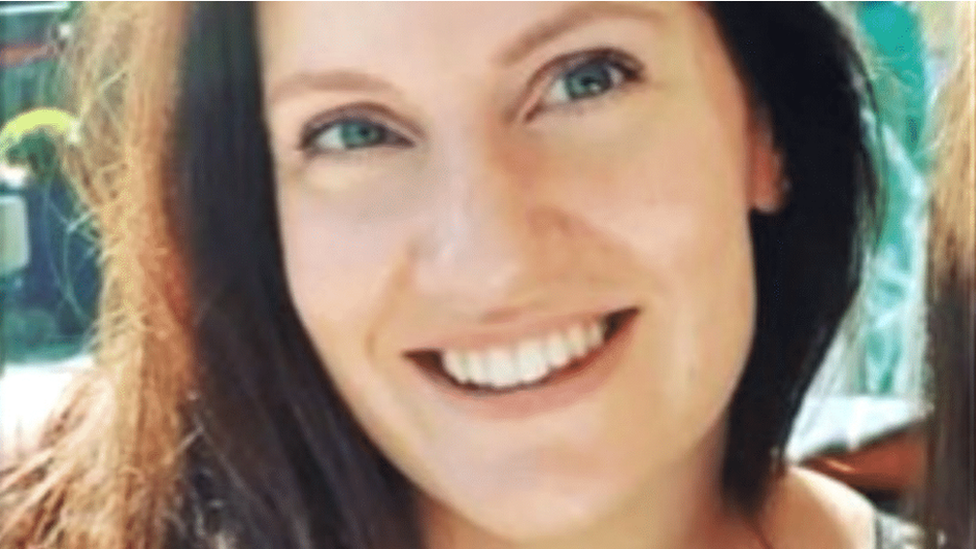Children's hospice Julia's House says funding "not sustainable"
- Published
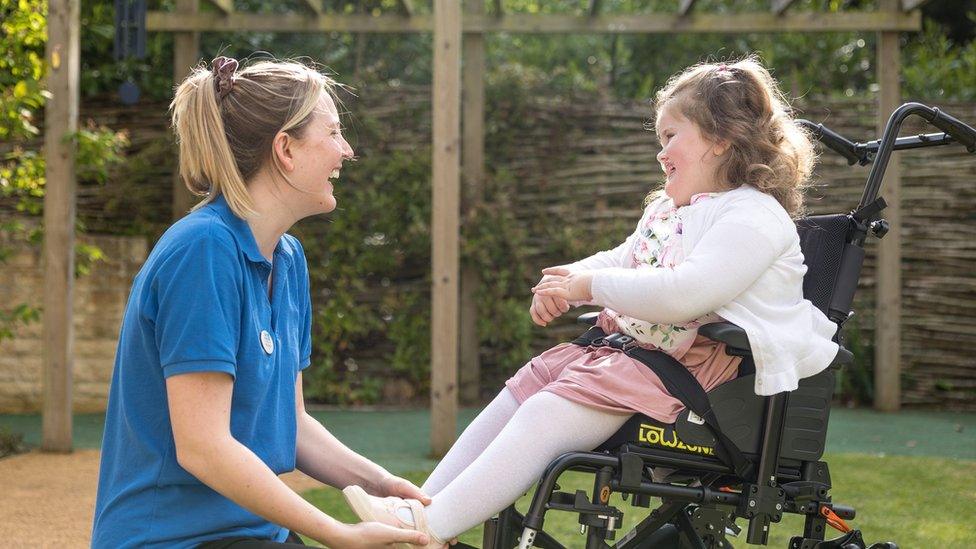
Julia's House supports terminally ill children and their families
A children's hospice charity that helps terminally ill children and their families said the government needed to improve funding for providers.
Julia's House, in Wiltshire and Dorset, is facing a £1m deficit this year.
Chief Executive Martin Edwards said state money made up 8% of its income, which he said was not enough for such an important service.
The Department of Health and Social Care (DHSC) said more than £350m has been available to hospices since 2020.
Julia's House, based in Devizes and Corfe Mullen, offers both practical and emotional support to families caring for a child with a life-limiting or life-threatening condition at home, in the community or at its hospices.
Mr Edwards said the "science has moved on" and children are able to live longer with different conditions, but the government funding has not moved forward.
Add that to rising costs because of inflation "it means a gap has emerged", he said.
"Although the public is very, very generous towards us, the fundraising can't meet that gap any more."
The support the charity offers to children and families by giving them a break while they are under "enormous stress for months, sometimes years..." takes pressure off the NHS, he said.
"We don't fund maternity care by people jumping out of aeroplanes and getting sponsored or buying second-hand clothing in our shops... so why is that good enough when it comes to children at the end of their lives?
"We need more help, it's just not sustainable any more."
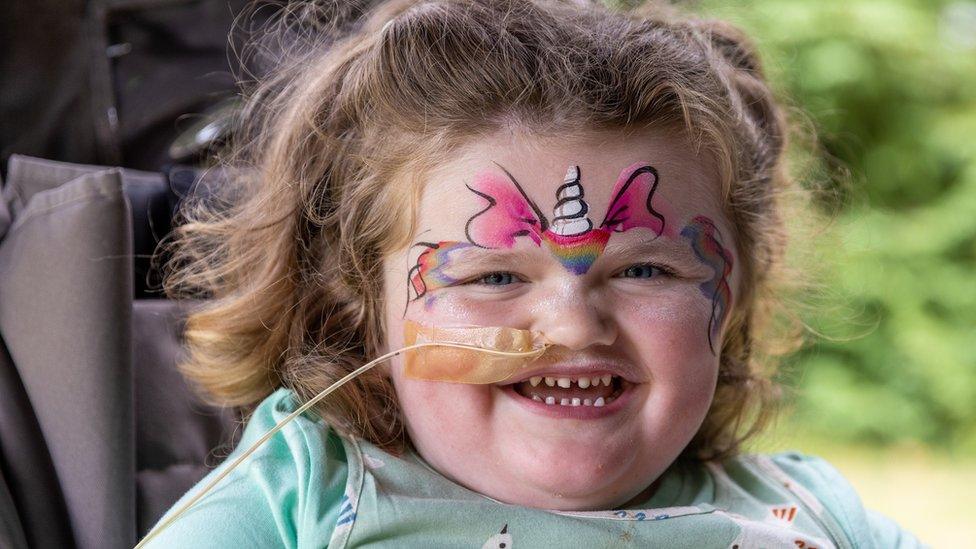
Seven-year-old Ellie was given a 1% chance of survival when she was just seven months old
Seven-year-old Ellie developed a brain tumour as a baby and was given a 1% chance of survival.
Following operations, chemotherapy and physiotherapy she continues to have cognitive and physical difficulties, but her cancer is now stable.
Her mother, Jenna, said after spending six months in hospital with Ellie during her treatment as a baby, her and Ellie's dad had to be medically trained in her conditions before they could bring her home.
It meant, when they came home no-one, other than trained nurses, could look after Ellie.
"Julia's House just scooped us up as a family and provided trained staff and gave us a couple of hours a week for us and Tom, Ellie's brother, who was two and a half years old when Ellie became ill," Jenna said.
"They've looked after us and have been our safety net, and I honestly don't know what we would have done without them.
"Ellie has a fantastic laugh and smile and wants to talk to everybody. She's a very chatty, smiley, happy little girl."
Jenna said she wanted the government to know how crucial the work of Julia's House was, and asked: "Why do we fund our palliative care by relying on donations?
"They have kept us together as a family and stopped us being a family in crisis. Without Julia's House the world would be a much darker place."
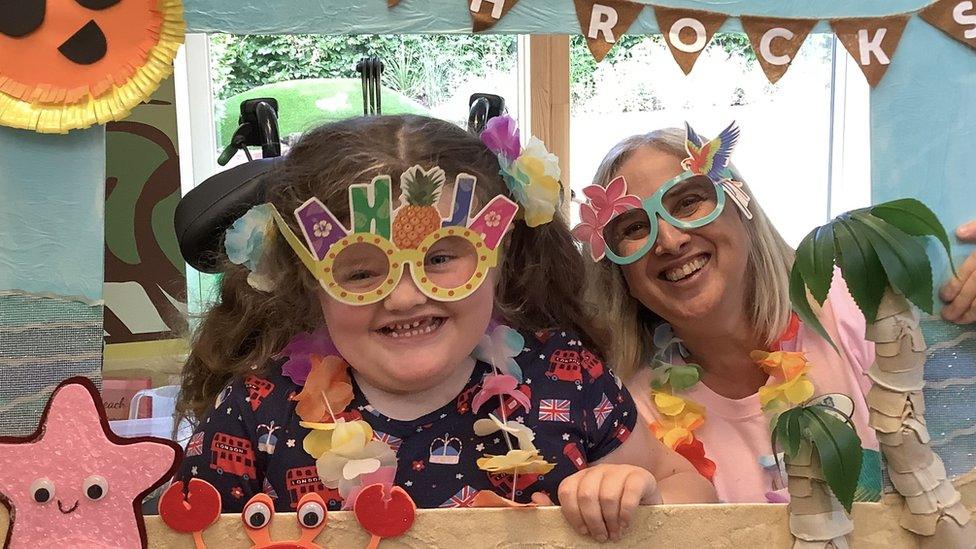
"Ellie is a very chatty, smiley, happy little girl," mum Jenna said
Mr Edwards said he would love to see a system similar to the one used in Scotland, where the government funded half the costs "which seems a fairer solution".
"But mainly, we want long term security and not the "patch and mend approach. If we could do a five-to-10-year plan we would avoid the worry," he said.
He said the main things they wanted to avoid was having to introduce a waiting list, or reduce any of the charity's essential services, which were "vital" to children and their families.
He said although they were expecting to receive £327,000 from the government for the Wiltshire and Dorset sites combined this year, the money had not yet been given to local authority boards to distribute as "it's still locked up in NHS England".
Mr Edwards said he had secured a meeting with the government on 17 April to discuss the "funding crisis".
In a statement, a government spokesperson said: "Our deepest sympathies are with the families of seriously ill children, and we want everyone to have access to the high-quality, personalised palliative care that can make all the difference at such a challenging time.
"That's why we require all local NHS integrated care boards to commission end-of-life care services to meet their patients' needs."They said more than £350m had been made available to hospices since 2020 to secure and increase additional NHS capacity and enable hospital discharge, to deliver care to those who need it.In 2024/2025, NHS England confirmed it would once again provide £25m of funding to children's hospices in England, the spokesman added.

Follow BBC Wiltshire on Facebook, external, X, external and Instagram, external. Send your story ideas to us on email, external or via WhatsApp on 0800 313 4630, external.
Related topics
- Published4 April 2024
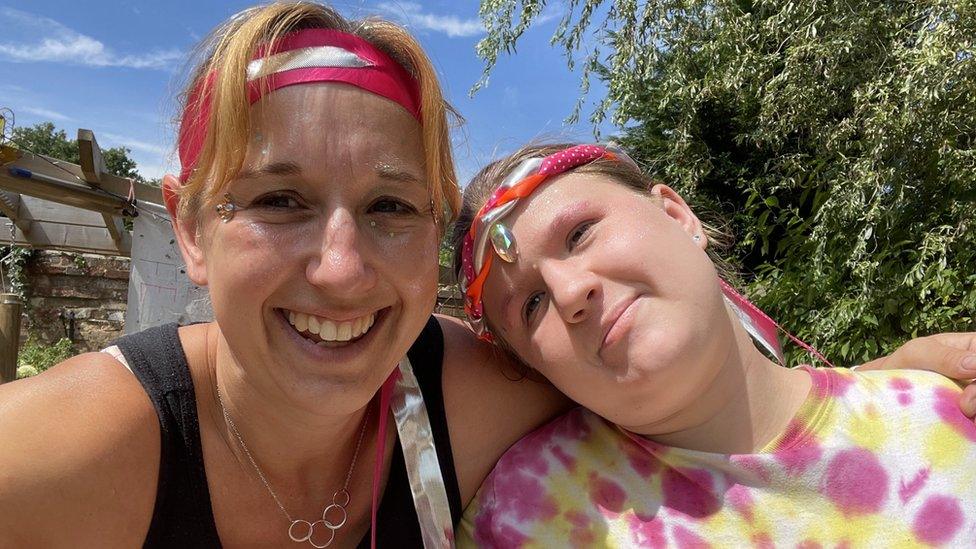
- Published10 December 2023
